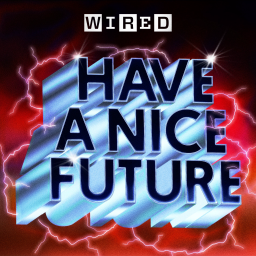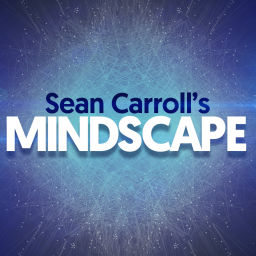
by Sebastian Hassinger
Your hosts, Sebastian Hassinger and Kevin Rowney, interview brilliant research scientists, software developers, engineers and others actively exploring the possibilities of our new quantum era. We will cover topics in quantum computing, networking and sensing, focusing on hardware, algorithms and general theory. The show aims for accessibility - neither of us are physicists! - and we'll try to provide context for the terminology and glimpses at the fascinating history of this new field as it evolves in real time.
Language
🇺🇲
Publishing Since
8/2/2022
Email Addresses
1 available
Phone Numbers
0 available

April 25, 2025
<p><strong>Introduction<br></strong><br></p><p>In this episode of The New Quantum Era podcast, host Sebastian Hassinger delves into an insightful conversation with <a href="https://www.linkedin.com/in/yonatan-cohen-10076b113/">Yonatan Cohen</a>, CTO and co-founder of <a href="https://www.quantum-machines.co/">Quantum Machines</a>. As a pioneer in quantum control systems, Quantum Machines is at the forefront of tackling the critical challenges of scaling quantum computing, and they also provided support for my interviews conducted at the American Physical Society’s Global Summit 2025. APS itself also graciously provided support for these episodes. </p><p>Yonatan shares exciting updates from their latest demos at the APS conference, discusses their unique approach to quantum control, and explores how integrating classical and quantum computing is paving the way for more efficient and scalable solutions.</p><p><strong>Key Points</strong></p><ul><li><strong>Scaling Quantum Control Systems</strong>: Yonatan discusses the challenges of scaling up quantum control systems, emphasizing the need to make systems more compact, reduce power consumption, and lower costs per qubit while maintaining high analog specifications.</li><li><strong>Integration of Classical Compute with Quantum Systems</strong>: The conversation highlights Quantum Machines’ collaborative work with NVIDIA on DGX Quantum, a platform that integrates classical and quantum computing to enhance computational power and low-latency data transfer.</li><li><strong>AI for Quantum Calibration and Error Correction</strong>: Yonatan explains the role of AI and machine learning in speeding up the calibration process of quantum computers and improving qubit control, potentially transforming how frequently and effectively quantum systems can be calibrated.</li><li><strong>Versatility Across Different Quantum Modalities</strong>: Quantum Machines’ control systems are adaptable to various quantum computing modalities such as superconducting qubits, NV centers, and atomic qubits, providing a flexible toolkit for researchers.</li><li><strong>The Role of the Israeli Quantum Computing Center</strong>: Yonatan describes Quantum Machines’ involvement in building and operating the Israeli Quantum Computing Center, providing researchers with hands-on access to cutting-edge quantum control technologies.</li></ul>

April 14, 2025
<p>Welcome to episode 48 of The New Quantum Era podcast! Another episode recorded at the APS Global Summit in March, today's special guest is true quantum pioneer, John Martinis, co-founder and CTO of <a href="https://qolab.ai/">QoLab</a>, a superconducting qubit company seeking to build a million qubit device. In this enlightening conversation, we explore the strategic shifts, collaborative efforts, and technological innovations that are pushing the boundaries of quantum computing closer to building scalable, million-qubit systems. This episode was made with support form <a href="https://www.aps.org/">The American Physical Society</a> and <a href="https://www.quantum-machines.co/">Quantum Machines, Inc.</a> (BTW I know I said episode 49 in the intro to this episode, I noticed it too late to fix without a further delay in posting the interview!)</p><p><strong>Key Highlights</strong></p><ul><li><strong>Emerging from Stealth Mode & Million-Qubit System Paper</strong>:<ul><li>Discussion on QoLab’s transition from stealth mode and their comprehensive paper on building scalable million-qubit systems.</li><li>Focus on a systematic approach covering the entire stack.</li></ul></li><li><strong>Collaboration with Semiconductor Companies</strong>:<ul><li>Unique business model emphasizing collaboration with semiconductor companies to leverage external expertise.</li><li>Comparison with bigger players like Google, who can fund the entire stack internally.</li></ul></li><li><strong>Innovative Technological Approaches</strong>:<ul><li>Integration of wafer-scale technology and advanced semiconductor manufacturing processes.</li><li>Emphasis on adjustable qubits and adjustable couplers for optimizing control and scalability.</li></ul></li><li><strong>Scaling Challenges and Solutions</strong>:<ul><li>Strategies for achieving scale, including using large dilution refrigerators and exploring optical communication for modular design.</li><li>Plans to address error correction and wiring challenges using brute force scaling and advanced materials.</li></ul></li><li><strong>Future Vision and Speeding Up Development</strong>:<ul><li>QoLab’s goal to significantly accelerate the timeline toward achieving a million-qubit system.</li><li>Insight into collaborations with HP Enterprises, NVIDIA, Quantum Machines, and others to combine expertise in hardware and software.</li></ul></li><li><strong>Research Papers Mentioned in this Episode</strong>:<ul><li><a href="https://qolab.ai/how-to-build-a-quantum-supercomputer-scaling-challenges-and-opportunities/">Position paper on building scalable million-qubit systems </a></li></ul></li></ul><p><br></p>

April 2, 2025
<p>In this episode of The New Quantum Era podcast, your host Sebastian Hassinger interviews two of the field's most well-known figures, John Preskill and Rob Schoelkopf, about the transition of quantum computing into a new phase that John is calling "megaquop," which stands for "a million quantum operations." Our conversation delves into what this new phase entails, the challenges and opportunities it presents, and the innovative approaches being explored to make quantum computing perform better and become more useful. This episode was made with the kind support of the <a href="https://www.aps.org/">American Physical Society</a> and <a href="https://quantumcircuits.com/">Quantum Circuits, Inc. </a>Here’s what you can expect from this insightful discussion:</p><p><br></p><ul><li><strong>Introduction of the Megaquop Era</strong>: John explains the transition from the NISQ era to the megaquop era, emphasizing the need for quantum error correction and the goal of achieving computations with around a million operations.</li><li><strong>Quantum Error Correction</strong>: Both John and Rob discuss the importance of quantum error correction, the challenges involved, and the innovative approaches being taken, such as dual rail and cat qubits.</li><li><strong>Superconducting Qubits and Dual Rail Approach</strong>: Rob shares insights into Quantum Circuits' work on dual rail superconducting qubits, which aim to make error correction more efficient by detecting erasure errors.</li><li><strong>Scientific and Practical Implications</strong>: The conversation touches on the scientific value of current quantum devices and the potential applications and discoveries that could emerge from the megaquop era.</li><li><strong>Future Directions and Challenges</strong>: The discussion also covers the future of quantum computing, including the need for better connectivity and the challenges of scaling up quantum devices.</li></ul><p><br></p><p>Mentioned in this Episode:</p><ul><li><a href="https://arxiv.org/abs/2502.17368"><strong>Beyond NISQ: The Megaquop Machine</strong></a><strong>: </strong>John Preskill's paper adapting his keynote from Q2B Silicon Valley 2024</li><li><a href="https://quantumcircuits.com/"><strong>Quantum Circuits, Inc.</strong></a>: Rob's company, which is working on dual rail superconducting qubits.</li></ul><p><br></p><p><br></p>

Quanta Magazine

Steven Strogatz, Janna Levin and Quanta Magazine

WIRED

Physics World

Sean Carroll | Wondery

Lawrence M. Krauss

Tristan Harris and Aza Raskin, The Center for Humane Technology

Vox

Stuart Gary

Theories of Everything

Vox

WNYC Studios

The New York Times

WNYC Studios and The New Yorker
Pod Engine is not affiliated with, endorsed by, or officially connected with any of the podcasts displayed on this platform. We operate independently as a podcast discovery and analytics service.
All podcast artwork, thumbnails, and content displayed on this page are the property of their respective owners and are protected by applicable copyright laws. This includes, but is not limited to, podcast cover art, episode artwork, show descriptions, episode titles, transcripts, audio snippets, and any other content originating from the podcast creators or their licensors.
We display this content under fair use principles and/or implied license for the purpose of podcast discovery, information, and commentary. We make no claim of ownership over any podcast content, artwork, or related materials shown on this platform. All trademarks, service marks, and trade names are the property of their respective owners.
While we strive to ensure all content usage is properly authorized, if you are a rights holder and believe your content is being used inappropriately or without proper authorization, please contact us immediately at [email protected] for prompt review and appropriate action, which may include content removal or proper attribution.
By accessing and using this platform, you acknowledge and agree to respect all applicable copyright laws and intellectual property rights of content owners. Any unauthorized reproduction, distribution, or commercial use of the content displayed on this platform is strictly prohibited.
